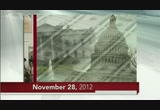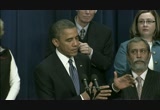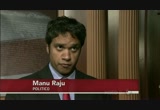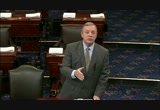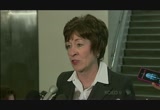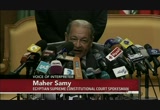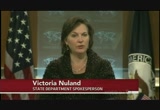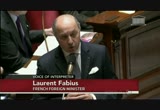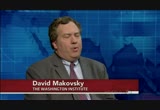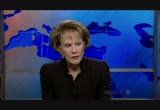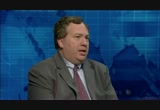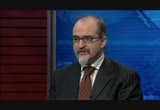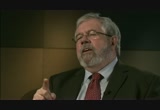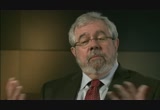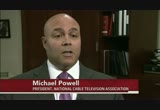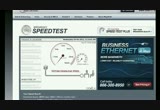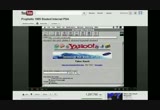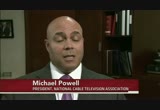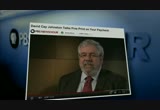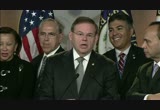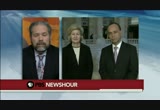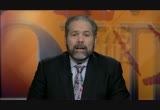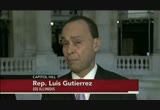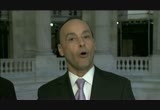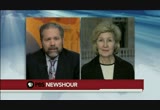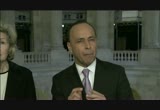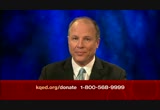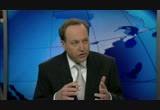tv PBS News Hour PBS November 28, 2012 6:00pm-7:00pm PST
6:00 pm
hikes and spending cuts. >> brown: then, we get two views of a palestinian bid for limited statehood, ahead of a key vote tomorrow at the united nations. >> warner: wonder why your bills are going up? paul solman examines "the fine print" with author and journalist david cay johnston. >> i'm not against corporations. i am in favor of rules that make you earn your profits in the competitive market. you don't get them through a government rule that lets the company reach in your wallet and take money. the kinds of profits that we're >> brown: after the election, what's next for immigration reform? ray suarez asks texas senator kay bailey hutchison and illinois representative luis gutierrez. >> warner: and on the "daily download," we look at how the obama administration is re-using digital information gathered for the campaign to rally support now. >> brown: that's all ahead on tonight's "newshour." major funding for the pbs newshour has been provided by:
6:01 pm
and with the ongoing support of these institutions and foundations. and... this program was made possible by the corporation for public broadcasting. and by contributions to your pbs station from viewers like you. thank you. >> brown: washington was a-whirl today with more talk of avoiding the much-discussed fiscal cliff. but as november wound down, the president suggested an agreement on taxes and spending could come in time for the holidays. >> i believe that both parties can agree on a frame work that does that in the coming weeks. in fact my hope is to get this done before christmas. >> you know me, i was born with
6:02 pm
the glass half full. i'm an optimist. >> brown: hopeful signs emanated from the white house and the capitol today, about getting a deal before the new year brings automatic tax hikes and spending cuts. president obama offered his optimism at an event with middle-class americans who'd be hit by any tax increase. >> i'm glad to see-- if you've been reading the papers lately-- - that more and more republicans in congress seem to be agreeing with this idea that we should have a balanced approach. so if both parties agree we should not raise taxes on middle class families, let's begin our work with where we agree. >> brown: one such lawmaker is republican house member tom cole of oklahoma. the journal "politico" reported he's urging colleagues to extend middle class tax cuts but allow tax rates for top earners to rise for now. that's what the president wants, but republican leaders have called for raising revenues by closing loopholes and capping deductions.
6:03 pm
and this morning, house speaker john boehner said he'd reinforced that position to congressman cole. >> you're not going to grow the economy if you raise tax rates on the top two rates. it'll hurt small businesses, it'll hurt our economy, it's why it's not the right approach. we're willing to put revenue on the table as long as we're not raising rates. >> brown: despite the president's talk of changing minds, "politico's" manu raju says that privately, house republicans think they can win this fight. >> right now the republican leadership feels pretty confident that they have most of their folks in line. they all generally support keeping tax rates low for virtually for every single income group. they do not want to see incomes increase for that top tax bracket. >> brown: meanwhile, on the senate floor, minority leader mitch mcconnell criticized democrats for putting social security off limits in any deficit deal. >> as for social security, the
6:04 pm
only thing we hear from why in the world wouldn't they want to talk about the fact that this vital program started spending out more than it took in 2010, for the first time in nearly 30 years and that its trustees now estimate that it will keep spending more than it takes it in for 75 years unless we strengthen it. >> brown: majority whip dick durbin answered that social security isn't the issue; it's medicare and medicaid. >> social security does not add one penny to the deficit. it's an important program, a critical program. let's take care of it in the future. let's do it separate from the debt debate. medicare is another story. medicare has 12 years of life left and let me make a point of saying it has eight of those years because of president obama's leadership. >> brown: white house officials said the president will send treasury secretary timothy geithner and legislative chief rob nabors to the capitol tomorrow, to meet with congressional leaders. >> warner: online, we have a primer explaining how the fiscal cliff might affect you. still, to come on the "newshour": debating palestinian status at the u.n.; reading the
6:05 pm
fine print; tackling immigration reform and re-purposing digital data gathered during the campaign. but first, the other news of the day. here's hari sreenivasan. >> sreenivasan: wall street tracked the ups and downs of the fiscal cliff drama in washington today. at one point, the dow jones industrial average was off more than 100 points. but stocks made up the ground after the president's talk of a deal by christmas. the dow ended with a gain of nearly 107 points to close at 12,985. the nasdaq rose 24 points to close well over 2,991. a moderate republican senator susan collins of maine voiced new concerns today about u.n. ambassador susan rice. it stemmed from rice's initial account, on a sunday talk show, of the attack on the u.s. consulate in benghazi, libya. at the time, she said it began as an anti-american protest, but she now says she was working off faulty intelligence. rice met with collins for 90 minutes today, but afterward the senator remained critical.
6:06 pm
>> i still have many questions that remain unanswered. i continue to be troubled by the fact that the u.n. ambassador decided to play what was essentially a political role at the height of the contentious presidential election campaign by agreeing to go on the sunday shows to present the administration's position. >> sreenivasan: collins stopped short of joining other republican senators who have said they will oppose rice if she is nominated to be secretary of state. later, president obama again defended rice. he called her extraordinary, and cabinet members joined him in applause. a pair of suicide car bombers in syria blew themselves up today in a suburb of damascus. at least 34 people were killed. the twin explosions shattered buildings and left streets littered with rubble. in addition to the dead, the state news agency reported dozens of people were wounded.
6:07 pm
meanwhile, in the north, rebels said they shot down a government fighter jet with an anti- aircraft missile. in egypt, the political crisis took a new turn, as two top appellate courts went on strike against president mohammed morsi. they said they won't return to work until morsi rescinds decrees giving himself near absolute power. at the same time, the supreme constitutional court rejected morsi's claims that it's undermining his government. >> ( translated ): the egyptian supreme constitutional court will not be terrorized from any threat or blackmail and it will not be subjected to any pressure from anyone, no matter how forcible the pressure. and the supreme constitutional court is ready to face this, whatever the consequences, which could be a high price, even if the price is the life of its judges. >> sreenivasan: the courts' actions came a day after nationwide protests against morsi's decrees. and late today, there was word the egyptian leader will address the country tomorrow about his actions and the response.
6:08 pm
rebels in eastern congo have begun pulling out of territory they seized from government troops just last week. neighboring countries had issued an ultimatum for the m-23 fighters to withdraw from the key town of goma by friday. the group is made up mainly of soldiers who deserted the congolese army last april. u.n. experts and the congolese government say rwanda is backing the rebels, in a bid to seize mineral wealth. the rebels deny the charge. three b.p. employees were arraigned in new orleans today on charges stemming from the 2010 oil disaster in the gulf of mexico. the charges ranged from manslaughter to concealing information. the two rig supervisors and a former executive pleaded not guilty. separately, the u.s. environmental protection agency barred b.p. from new federal contracts-- indefinitely. it cited a lack of business integrity. those are some of the day's major stories. now, back to margaret. >> warner: the palestinian authority will make an historic move tomorrow at the united nations, despite being discouraged by the united states. for palestinian president
6:09 pm
mahmoud abbas, it is a moment of diplomatic and political opportunity. tomorrow's vote in the u.n. general assembly. >> we are going tomorrow to the united nations to upgrade the status of palestine to an observer state at the u.n. and this is the first step to accomplish our palestinian rights which we have cemented in >> warner: abbas is seeking recognition of palestine as a non-member observer state encompassing the west bank, gaza and east jerusalem along the pre-1967 war borders. his fatah faction only rules now in part of the west bank. its islamist rival hamas, which advocates violent resistance to israel, controls gaza. after long opposing abbas's u.n. efforts, the militant hamas recently endorsed the move. >> ( translated ): the hamas movement is with all the diplomacy acts that adds to the palestinian victories. we welcome the step for statehood at the united nations but we want it to be through a national program based on the
6:10 pm
resistance and keeps the palestinian rights. >> warner: general assembly recognition would put palestine on a par with the vatican at the u.n., but would not grant full representation. last year, abbas failed to win full u.n. membership for a state of palestine. the u.s. is opposed to even limited recognition, saying it will endanger prospects for a negotiated settlement with israel. state department spokeswoman victoria nuland issued that warning again today. >> we are concerned that this vote is going to make the work of getting... the work of getting the parties back to the table more difficult. >> warner: but the palestinians' u.n. representative riyad mansour voiced the opposite view yesterday. >> it should be respected by everyone and we should get ready for the day after. the day after that we desire is to create a conducive atmosphere to go to negotiation in order to reach an agreement with israel that will end the occupation that started in 1967 and allow for the independence of our
6:11 pm
state, the state of palestine, >> warner: a majority of the general assembly's 193 members are expected to vote yes, not just the muslim and developing countries, but a good number of european nations, too. denmark, spain, switzerland and, as of yesterday, france. >> you know that for years and years, the constant position of france has been to recognize the palestinian state. so that is why i am answering you directly: next thursday or friday, when the question is put before us, france will answer yes out of a desire for coherence. >> warner: germany said again today it will vote "no". britain announced it will abstain, but would vote yes if the palestinians pledge not to try to join the international criminal court, and agree to return to negotiations without conditions. israeli government spokesman mark regev dismissed abbas's effort again today. >> this palestinian move at the
6:12 pm
it's not going to change anything on the ground. the only way to make life better for both israelis and palestinians is to solve the issues that separate us, it is through peace talks, direct peace talks, and we are ready. i frankly don't understand how the palestinians expect to make peace if they refuse to talk to us, only through direct peace talks can we solve the issues and make a better future. >> warner: for president abbas, the u.n. win could boost his standing, after the recent conflict in gaza bolstered hamas among palestinians and across the middle east. >> for more on the palestinian bid, i'm joined by david makovsky and gaith al-omari, executive director of the american task force on palestine. welcome back to both of you. let's start by explaining why is this such a big deal? you've got the u.s. vociferously opposed to it. why is this such a big deal, first of all, for the palestinians? >> for president abbas, the stagnation in the peace process over the last couple of years, his lack of any diplomatic achievements throughout that period, and the fact that we have seen hamas gaining more and
6:13 pm
more mainstreaming in the region and beyond the region makes it -- >> warner: gaining more popularity? >> more popularity, more diplomatic recognition by some of the arab countries, et cetera, all of these things have made abbas need a diplomatic achievement. not necessarily for the strategic value of it, but for the political value and for the credibility that's been given him in the palestinian streets. >> warner: why is it such a big deal for israel? >> for israel they see it as politically harmful, as a step away from the tablement as gaith said, we've been in this impasse now for a few years and it seems it incentivizes, the palestinians go to a third party, the u.n., to impose an outcome of statehood and to get the statehood without going through through peace. and that these two ideas should be really joined. so that's the main point of the second fear is that somehow this would put a snowball impact on
6:14 pm
the international criminal court and create certain efforts to delegitimize israel in the international arena and if there was another gaza situation that it would impair israel's ability to defend itself. >> warner: because the new palestinian state, quote/unquote, might take the opportunity to go to the i.c.c . >> right. >> warner: they'd be at least entitled to try for membership there. so gaith back to you. what impact did the gaza conflict that just ended a week ago have on all the the actors here? >> from a palestinian point of view, from point of view of president abbas, it made it very clear and it sharpened his need for political achievement. so it made him more determined to go through with this step. for some of the europeans, i think, they felt that hamas' diplomatic and political gains are getting too much. and abbas needs, again for himself. so you saw some countries like france and others changing their
6:15 pm
view, moving from abstention to actually voting for because they felt that the trend are going in a negative direction. and i suspect what we will see in the israeli and american reaction and the day after some recognition that the balance of power in palestine has shifted and abbas needs to be supported at this moment, even though there is tremendous frustration with his move. but i think strategically they understand he has to be strengthened otherwise it's going to be hamas that will take the lead. >> warner: do you agree? do you expect israel's reaction to be less negative than it would have been two weeks ago? explain this. >> i think actually gaith and i agree. i think that it's more muted right now. now, things could change in 24 hours if abbas gives an incendiary speech at the u.n. where -- like he's done in the past, said jerusalem is only the capital for christianity and islam and hasn't even mentioned the jewish connection of the land. so the tone could impact things. but i think it's more muted for the reason gaith said.
6:16 pm
i think there is some concern that with the gaza campaign last week that that gave hamas too much of a boost and this would really be leading to a situation where israel's steps could hurt the wrong guys. >> warner: you mean, for instance, if israel were to try to withhold the tax money they collect. >> right. we'll have to see for sure. but i think that is a big factor. i think a second element in this is the counterintuitive relationship that is emerging between president obama and prime minister netanyahu as a result of gaza. i was in jerusalem, i was in ramallah last week and during gaza and it was striking how the prime minister's people were very delighted by the statement of the president in east asia. >> warner: you're talking about the prime minister of israel were delightd? >> right. and that therefore this is -- they're not looking for something and it also may add that we just came off of a
6:17 pm
couple days ago and netanyahu will maximize the vote which also says that you can manage the american account. >> warner: but abbas as a leader in the palestinian community has been adversely affected by gaza, has he not? >> oh, most certainly. most certainly. >> warner: and his whole path toward negotiation? >> basically the message incoming from hamas is negotiation and diplomacy have produced nothing, throwing missiles into israel is producing gains, whether politically now after the last gaza round they expect that things are going to go -- open up, the borders are going to open up. all of these things mean that hamas' message-- that violence actually works-- is taking traction. while abbas' message that diplomacy works have produced nothing over the last couple of years. added to this i would say over the last year what we have seen is a very interesting dynamic. on the high diplomacy, the very visible diplomacy, a lot of tension and a lot of mutual
6:18 pm
recrimination. on the ground there has been a degree of cooperation between prime minister salify and his government and the israeli government to such an extent that you see elements wanting to reward that kind of trend and are aware that cutting off funds, whether by the u.s. or israel actually hurts the only thing that has been working. so i think all of these things together come to produce would what i would hope would be a more rational response. >> warner: so bottom line: what impact will this have on, say, the prospects for moving at all off the negotiation which is have been stalled for so many years ? >> i think nothing is big is going to have-to-happen until after the israeli elections in january and hopefully we'll see a broader-based government and we'll see also president abbas realize two years of impasse, not coming to the table has not really yielded much and that they will basically realize you could have all the symbolic votevoteat theup as you want bus
6:19 pm
no substitute for working out your differences face to face and the road to statehood leads through peace. >> warner: you mean through negotiated peace. >> right. >> warner: but that would require the palestinians to drop their precondition on talks, right? which has been first israel has to stop building settlements. >> i think it would require action from the three parties: the palestinians, the israelis and the u.s. from the palestinian point of view i think abbas has a choice. either he's going to use his newfound momentum to pivot towards creating a condition where we can have peace talks after the israeli tpoeugss. >> warner: which would mean dropping that demand. >> it would mean dropping that demand, producing a new public messaging, focusing more on things on the ground. less confrontational, more looking towards direction. but also requires israel to react to this, or not to overreact to this whether by cutting off funding and requires the u.s. as well to not overreact by cutting off funding by to try to find these areas of common interest that exist and build on them in order to create
6:20 pm
a virtuous die 'nam that i can come the israeli elections we might have the ground work laid out for something serious. >> warner: well, hope springs eternal as always. gaith al-omari, david makovsky, thank you. >> thank you. >> brown: now, what's behind all of those charges and fees that make up your monthly cable and cellphone bills? "newshour" economics correspondent paul solman recently took a look at the fine print with writer david cay johnston. it's part of paul's ongoing reporting: "making sense of financial news." >> reporter: cell phone bills-- up 31%, on average, since 2009. average cable tv bill-- nearly tripled over the last decade. electric utility rates climbed five years in a row, the biggest run-up since the 1970s. and the cost of actually paying the bills? also going up, as banks hike
6:21 pm
monthly fees: checking, a.t.m.s, overdrafts. it's all chronicled in the fine print, a new book by pulitzer prize winner david cay johnston, who argues that large corporations, with government as accomplice, have rewritten the rules at the expense of small businesses and consumers like you and me. when you signed a credit card agreement, for example, did you know this? >> that you give up your right to sue if something goes wrong. >> reporter: that, in bank disclosure agreements covering bounced check fees. >> the markup could be as i show in my book, 470,000%. >> reporter: but johnston's favorite examples come from the telecom industry. >> this is my latest monthly verizon wireless bill. one of my favorites is access charge, f.c.c. access charge. >> reporter: right, i never figured out what that was. >> well, it sounds like the f.c.c., the federal communications commission is charging you a fee. no, the government doesn't get a penny of that, that's the charge for connecting to long distance.
6:22 pm
>> reporter: connecting to long distance lines that have been up for decades but that companies like verizon charge for access to. but that's far from the only non-obvious item on the bill. fed universal service charge, regulatory charge, administrative charge, gross receipts surcharge, then there's a safety commission surcharge so many of the amounts are small enough that you go, "well, i'm not going to complain about a 59-cent federal access surcharge." >> but here's a little thing to think about that. if you could get everybody in america to pay you one penny a day. at the end of the year you'd have $1.1 billion. if you can get a dime you're going to have $11 billion at the end of the year. if you can get a dollar you can have over $100 billion. >> reporter: this is finally how we're going to be able to support the "newshour," we'll get each of you to send a penny and...
6:23 pm
>> but that's the trick, you've got figure out how to get everybody to give you that penny and the best way to do it is if you're already billing them, you find ways to stick in all these extra little charges. >> reporter: it didn't always used to be this way. here, for example is a scranton, pennsylvania electric bill from 1937, back when public utilities were strictly regulated. >> it's a very simple bill, it's not even a full page of paper, and it has the account number, the dates that are covered, the meter reading, this person used three kilowatts per hour of electricity, and the price written down here at the bottom. >> reporter: today's bill, by contrast-- this one from phoenix, arizona-- has 22 line items. >> there's a charge for metering. every month they're going to charge you for the meter. there's a charge for the bill, $1.86 just for preparing your bill. there's an environmental benefit surcharge, a competition rules compliance surcharge. so we're going to have competition in the market, and you're going to pay to have competition in the market. >> reporter: competition, of course, is one of the goals of de-regulation. >> but the kinds of profits that we're seeing today, those do not
6:24 pm
reflect market competition, they reflect the defeat of competitive markets. >> reporter: dramatic case in point, says johnston: the cable television industry. you write about glasgow, kentucky, and what happened when the town tried to provide its own cable service. >> glasgow was facing very, very high prices from its monopoly cable company. just to get a handheld remote was five bucks a month. and so they decided to build their own system. well, immediately they were sued and finally it got before a federal judge well known for his very conservative views who listened to the complaint of the cable company and leaned down over the bench and said: sounds like you don't want to have competition down there in glasgow. well, that system which has been upgraded twice now has saved people in that town about $3,000 each over the last 20 years. and the fastest internet in america is found in those cities
6:25 pm
where the city fathers built the internet for their community, just like city fathers in some places built their own electric system when the big utilities wouldn't pay any attention to them in the late 19th century. >> reporter: now all this is strong stuff. so strong that we sought out the other side: the cable industry itself. michael powell, head of the federal communications commission under president george w. bush, is now president of the national cable television association. >> many of these state-owned local utilities have often failed because of financial hardship and rarely are offering speeds that are faster or cheaper than what's provided privately. even in glasgow, kentucky the top speed is only 6 megabits per second for $36. that's hardly exceptional. it's certainly no better than what's being provided in the private market. >> reporter: where average speeds are three times as fast, claims powell and prices are falling, not rising. >> the price per megabit per second has decreased 87% since
6:26 pm
1999. in fact in 2010, the federal communications commission conducted a survey of american citizens and 93% of respondents said they were very satisfied with their broadband experience. many cable companies have recently announced very substantial increases in speed with no accompanying increase in price. so the evidence suggests that consumers are getting real value in broadband in the united states. >> reporter: but johnston doesn't buy powell's megabit average, says if people do say they're satisfied, its because they don't know what they're missing. or how much less they could be paying, because his key point-- there's so little competition. >> i have in my house something called a triple play package. you get internet, telephone and cable tv. >> reporter: right, i have that, too. >> and i pay for the basic service with taxes $160 a month. >> reporter: yeah, that's about what we pay. >> if you go to france you get the same package for the equivalent of $38 a month and you don't get two country calling, you get worldwide
6:27 pm
calling to 70 countries. you get live tv from all around the planet and your internet is 20 times faster uploading and 10 times faster downloading. >> reporter: and why is this? >> because they have set up a different system. they want to have universal service. >> hey, why should i be on the internet? >> reporter: although they didn't call it that, universal service-- high-speed broadband for all-- was the dream of these montana fifth graders back in 1995, when the world wide web was in its infancy. >> by the time were in college the internet will be our telephone, television, shopping center and workplace. >> reporter: today, about a quarter of montanans still don't have broadband access, neither do 19 million americans, most, but not all, in rural areas. >> we paid $360 billion of rate increases to verizon and at&t and the other big telephone companies and we paid $100
6:28 pm
billion more to cable companies in rate increase, and they were supposed to create the system. >> reporter: by laying fiber optic cable everywhere. >> everywhere. that's right, and instead they're laying it only where they want to. what's the value to our society having everybody interconnected versus the profits the companies can make by saying: no, we're just going to serve the most high-profit areas and ignore the rest. >> reporter: verizon and at&t declined our interview requests. but, says the cable industry's michael powell. >> cable modem service is available in this country to 93% of americans. we serve all of our communities whether rural or poor. there's absolutely no evidence we separate availability based on profitability. >> reporter: but johnston points to his own experience in upstate new york as a counterexample. as compared to, oh, bulgaria. >> we invented the internet so we started out at number one, we're now 29th and falling, and we're behind places like lithuania and bulgaria. >> reporter: and thus johnston's
6:29 pm
controversial bottom line: that reading the fine print would show just how anti-competitive america has become. >> i'm not against corporations. i am in favor of rules that promote competition, that prevent monopolies and duopolies, that make you earn your profits in the competitive market, you don't get them through a government rule that lets the company reach in your wallet and take money. >> reporter: david cay johnston, thank you very much. >> well, thank you. >> brown: paul found one more example of fine print you may not know about: in your paycheck. find out about that online. >> warner: next tonight, a look at the future of immigration reform. ray suarez has our story. >> esta es la oportunidad... >> suarez: members of the congressional hispanic caucus had a clear message today in two languages: now is the time for comprehensive immigration reform, after years on the back burner.
6:30 pm
illinois democrat luis gutierrez: >> for years and years our caucus been fighting for immigrants to our nation. for years i've asked, we've asked for one simple thing-- fairness. fairness for people who work hard, pay taxes, and make america a better place for all of us. and what was the result? a congress that refused to act. >> suarez: the issue was also largely ignored during the campaign. but the president's re-election was bolstered in part by the 71% of hispanic voters who supported him. now, republicans have joined in promoting reform. yesterday retiring senators kay bailey hutchison and jon kyl introduced the "achieve act" for young undocumented immigrants. >> there is a very time sensitive issue of these young people who have gone to schools in america, have graduated form we think the best thing we can do to utilize their talents and
6:31 pm
the education they have received is to give them a legal status. >> suarez: the bill would to grant legal residence for those who pursue higher education or serve the u.s. military. unlike the "dream act," which failed to get through congress, the "achieve act" would not provide a path to full citizenship. and that is a sticking point for most democrats. new jersey senator bob menendez: >> they call it the achieve act. the problem with the achieve act is that it does not achieve the dream of the young people who aspire to fully participate in american life. who only know one flag that they pledge allegiance to, that is the flag of the united states. >> suarez: still, senator kyl said tuesday, the republican bill can be a first step toward broader measures. >> it will begin the discussion. and it may be that it will lead to a series of smaller steps next year rather than comprehensive reform. on the other hand i suspect that the president and others may want to put comprehensive reform on the table. but either way i think focusing on certain specific issues like this preliminarily is a good way
6:32 pm
to understand what the issues are and to try to build a consensus over time. >> suarez: and either way, immigration reform appears to be back on the agenda for the new congress, opening for business in january. where does the immigration debate go from here? we get the views of two members of congress congress: kay billyn is a republican senator from texas and luis gutierrez is a democratic congressman from illinois. senator, how does your and senator kyl's new achieve proposal differ from the dream act that failed to pass the senate at the end of 2010? >> our proposal gives legality to those young people who come here, they've known no other country but america because they were here early and they're going to get an education or they're going to get a vocational degree of some kind or they're going to serve in the military. and they will have a legal status. where it differs is that unless they decide to pursue
6:33 pm
citizenship, it is not an automatic. if they do pursue citizenship-- which they can under the law as it is today-- they would go behind the people who are already in line so that there is a fairness in the system to those who have waited for years to become regularized. but they will have a preference in that they will be here legally, can work, and build up all of their seniority while they are waiting in the line. >> suarez: senator, would you say the prospects for a bill of this kind have changed? have gotten better since the election? >> i do think that people are now realizing that we've got to have immigration reform and speaking only for myself i believe that doing immigration reform in pieces is going to be achievable rather than trying to do comprehensive which gets bogged down in extraneous issues that make it very hard to come to a total big conclusion.
6:34 pm
>> suarez: representative gutierrez, today the hispanic caucus laid out a set of principles it would want to see in any immigration reform bills. given what you and the caucus members said today, is the senator's achieve proposal at least a place to begin the conversation? >> you know, it is a step in the right direction. it takes us away from a republican platform and a candidate for president, romney, who said we should just have them self-deport. that is pack your bags and leave. millions of american citizen children have undocumented parents. thousands of americans are married to undocumented spouses. look, it's a destructive force our broken immigration system. but i don't think that -- in that sense it's a step in the right direction because what the senator is saying is they can stay. it's a realization that they're not simply going to disappear one day and leave the country.
6:35 pm
and that they have a rightful place in the united states of america. what we'd like to say and one of our principles as we've articulated today is we want them to be citizens of the united states and we want them to have a clear path to that. now, i understand when the senator says that they should be put at the back of the line. i get that part. look, that's why you have to do comprehensive immigration reform. because under comprehensive immigration reform we say there should be no backlog. there should be no permanent resident. there should be no citizen who has petitioned for their wife or their husband or their minor children or their brothers and sisters. those people should come and be reunited and once we take care of that backlog obviously then we can put these young people -- but these young people should have a special place in the line because as the senator says this is the only country they've ever known. and, you know, they swear allegiance, they love this country, it's the only one they know and in the enwe have said we will give them a pathway to stay permanentfully the united states if they will serve in the
6:36 pm
military-- the highest tax any citizen of any nation can pay, any individual can pay to a nation is that of their blood and their limbs. if they're willing to do that we should give them a clear pathway to american citizenship because that's what they really deserve. >> suarez: senator, just a moment ago you were doing this in a -- talking about doing this in a phased way, piece by piece. it sounds like the hispanic caucus is looking for comprehensive reform and earlier today senator menendez says the community speaks with one voice on this issue. is comprehensive reform too heavy a lift, do you think, in the next congress? >> you know, ray, i was in on the negotiations which went on for months with senator kennedy and senator mccain and others. we tried very hard to come up with a balanced, comprehensivive immigration reform. and what we found is that if you took one set -- say you're talking about the dream act or the young people who are here and we want to have them
6:37 pm
achieve, you take that and you are working on that but then someone who is for you on that but they don't like what you've done on the side of border control or more d.p.s. agents or more of the border patrol agents. and then you have another set that wants something for ag workers. and they won't like something you did in another section. and we found it impossible to come together in a comprehensive way and it fell apart. that's why i think a step by step approach is the one that will be more successful. because the more ways you have to deal with the solitary issue-- and in this case it's the most time-sensitive issue because it's these young people who have american educations, they've graduated from high school, they want to go to college, they want to be a part of our system, they want to be a part of the community, we want them with that education to get
6:38 pm
there. but if you start then going beyond that particular area, you get bogged down and we're not going to be able to help them. i think you could then go to the next phase which would be border patrol or border security work visas in other areas like high tech, but i do think a step-by-step approach can be successful where i don't think comprehensive is going to be able to be done, especially in this environment, to be honest. >> suarez: representative, you just heard the senator lay out why time is of the essence. is time also of the essence in a political sense? do you have to do this in calendar 13 before the congress gets caught up in the midterms for 2014? >> look, tomorrow, the next session, the next month, the next term, those aren't words. it's now. the latino community spoke clearly and eloquently and
6:39 pm
forcefully and in a unified fashion across this nation. and i say to my colleagues in the republican party it is time that we listen to the electorate. and they spoke very clearly. look, a couple of things just very quickly: everyday we deport a thousand people. that's 30,000 a month. let me just make it clear: tens of thousands of people are going to be deported this year who have american citizen children. they can't wait for piecemeal. we have a stem industry that needs workers today. think about all this talk about uncertainty and uncertainty and how that has an impact, a negative impact on our economy. let's take the uncertainty away from 12 million people and say "get in line, get right with the law, learn english, pay your taxes and one day you can be an american citizen." and you know what those 12 million people will do with the uncertain any their life? they will buy that house, they will buy that car. they will expand the business they're already in and they will pay more taxes and be right with
6:40 pm
the law. our nation cannot continue to have millions of people and we don't know who they are. i want them registered with the country and i want them fulfilling the responsibility that i and the senator fulfill as citizens of this nation. it is their responsibility and we should give them that opportunity. >> suarez: luis gutierrez of illinois, kay bailey hutchison of texas, thanks to you both. >> thank you. >> brown: we'll be back shortly with the "daily download", our look at politics and social media. but first: this is pledge week on pbs. this break allows your public television station to ask for your support.
6:47 pm
>> brown: finally tonight we continue our regular look at the intersection of politics and social media. we're joined by lauren ashburn, the site's editor-in-chief, howard kurtz is "newsweek's" washington bureau chief and host of cnn's "reliable sources." welcome back. >> thank you. >> brown: after the election, it's all fiscal cliff, right? let's talk about how the white house is using social media and online efforts on that issue. >> it's as if this massive social media machine that propelled barack obama into office never stopped moving. and you found that at the white house today where he gave a speech talking about the fiscal cliff, introducing the hashtag-- which is a way of grouping
6:48 pm
something-- my2k, which is a playoff of waoeubgt, ther of y2. he's saying if you don't do something you are going to have to pay as middle-class taxpayers, $2,000 allegedly. >> if congress doesn't stop the automatic tax hikes. >> brown: but this was in the context of a whole week where he's making his play, right? but doing it online? >> it's fascinating with the president of the united states building it around a twitter campaign, we've come to take that for granted but i did a little search for this my2k. on twitter. barack obama comes up second. you know what comes up first? the conservative heritage foundation which bought a promoted tweet, which means theirs goes to the top of the list and it says "four reasons why warren buffett" the ally of the white house on this "is wrong on tax hikes." >> but the interesting something that now any time anyone types
6:49 pm
up on twitter "my2k" which was a white house-created hashtag, you get the heritage foundation. >> among others. >> brown: among others. >> you would think that -- at the top. you would think that the obama administration would have bought their own tweet. >> brown: howie, what is the administration asking its supporters to do through this tash tag? i mean, is it just to get the word out or is there something more explicit? >> well, it's all about mobilizing public opinion which is easier to do when n a campaign when off clear choice-- barack obama or mitt romney. with the romney campaign having evaporated the democrats have an advantage on this. so obama for america, the digital group that was created to help get president obama elected to a second term has sent out an e-mail with graphics to its supporters on millions of people oner, the mail list urging them to get involved on the president's proposals and to share some of this information with their friends. >> brown: we're taking a look
6:50 pm
at that now. so that's, lauren, part of this -- this is what you're talking about, the permanent campaign. >> it just never stops. they're saying share this with your friends. make a youtube video, post it on your facebook and your e-mail. the question really comes down to will this be as effective as these push letters were during the campaign? during the campaign it's "vote." very simple, you have to go and vote. here it's okay now you have to get involved in this really complicated issue called the fiscal cliff or the austerity movement. >> brown: a little harder than-to-explain than just street yes or no. >> and when you get into the back-and-forth of negotiating with congress and there will be different proposals, how many americans would have their tax cuts extended, who's considered wealthy, $250,000 or above, it's a harder sell to make and can you maintain the passion people have around the dramatic narrative of a presidential election versus the inevitable slog of negotiating with members of congress. >> and everybody's really tired of it.
6:51 pm
as i was saying, we have been the tweets where we were talking about my2k tweets somebody actually said "got to stock up on bottled water, flashlight batteries and ramen noodles. people are just playing with twitter and they're tired of the substance. >> brown: i think it was just this week, howie, the obama campaign manager -- former now, jim messina, he was talking about this very issue, about keeping supporters, those millions that they got, engaged. but do they know how the do that? is this like everybody else trying to figure out how to keep it going? >> this is the second opportunity. because after the election of 2008 when president obama had built this digital machine given the technology at the time it kind of atrophied. they were not able to keep it up. i think here's there's a concerted effort, we have the obama for america, we used it in the campaign successfully, let's continue to recruit and activate this volunteer army through digital means, facebook, twitter, youtube, as you were
6:52 pm
saying. but i don't know if they can maintain the level of enthusiasm once the election has passed. >> brown: what about, lauren, the other side? the republicans -- you mentioned the heritage foundation coming in on something like this, that's a think tank. but the republican party has a bigger problem. right? >> it has a very big problem, bigger than social media, frankly. but you do have speaker john boehner is very active on twitter and he today was saying "the house g.o.p. voted to stop my2k tax rate hikes and defend small business jobs." but that's one person and you have lots of different people in the congress sort of getting in on this bandwagon but there isn't that overall effort because the romney campaign lost. >> but you do have grover norquist, the antitax activist, who has been very active on twitter told me today he considers it a great organizing tool. he's been about 50 television shows in the past week but it's not the same as having a presidential candidate who has a
6:53 pm
big megaphone. >> brown: permanent social media campaign. just what we need. the the daily download, howard kurtz, lauren ashburn, thanks so much. >> thanks, jeff. >> warner: again, the major developments of the day: president obama said he believes a framework for a debt-cutting deal can be reached in the coming weeks, possibly before christmas. stocks rebounded on the hopeful talk in washington. the dow industrials gained more than 100 points. and the top appellate courts in egypt went on strike against president muhammad morsi's move to assume near-absolute power. morsi planned to address the egyptian people tomorrow. >> warner: online, we continue our series on social entrepreneurs with a profile of a woman who's breaking taboos. hari sreenivasan has more. >> sreenivasan: harvard business school graduate elizabeth scharpf launched sustainable health enterprises. it helps women in low-income countries to jump start businesses to manufacture and distribute affordable feminine hygiene products. find her story on our social entrepreneurs page. plus, on making sense, paul solman breaks down the pros and cons of investing in i-bonds versus 403(b) retirement savings
6:54 pm
plans. all that and more is on our web site newshour.pbs.org. margaret? >> warner: and that's the "newshour" for tonight. on thursday, another in our series of conversations with incoming senators. tomorrow, we'll talk with jeff flake, a republican from arizona. i'm margaret warner. >> brown: and i'm jeffrey brown. we'll see you online and again here tomorrow evening. thank you for joining us. good night. major funding for the pbs newshour has been provided by: ♪ ♪ moving our economy for 160 years. bnsf, the engine that connects us.
6:55 pm
and with the ongoing support of these institutions and foundations. and... this program was made possible by the corporation for public broadcasting. and by contributions to your pbs station from viewers like you. thank you. captioning sponsored by macneil/lehrer productions captioned by media access group at wgbh access.wgbh.org
6:59 pm
captioning sponsored by wpbt >> this is n.b.r. >> susie: good evening, everyone. i'm susie gharib. from the white house to capitol hill, c.e.o.s from some of the nation's biggest companies met with the president and lawmakers, urging them to compromise on the fiscal cliff. we speak to honeywell's david cote.
208 Views
IN COLLECTIONS
KQED (PBS) Television Archive
Television Archive  Television Archive News Search Service
Television Archive News Search Service 
Uploaded by TV Archive on

 Live Music Archive
Live Music Archive Librivox Free Audio
Librivox Free Audio Metropolitan Museum
Metropolitan Museum Cleveland Museum of Art
Cleveland Museum of Art Internet Arcade
Internet Arcade Console Living Room
Console Living Room Open Library
Open Library American Libraries
American Libraries TV News
TV News Understanding 9/11
Understanding 9/11